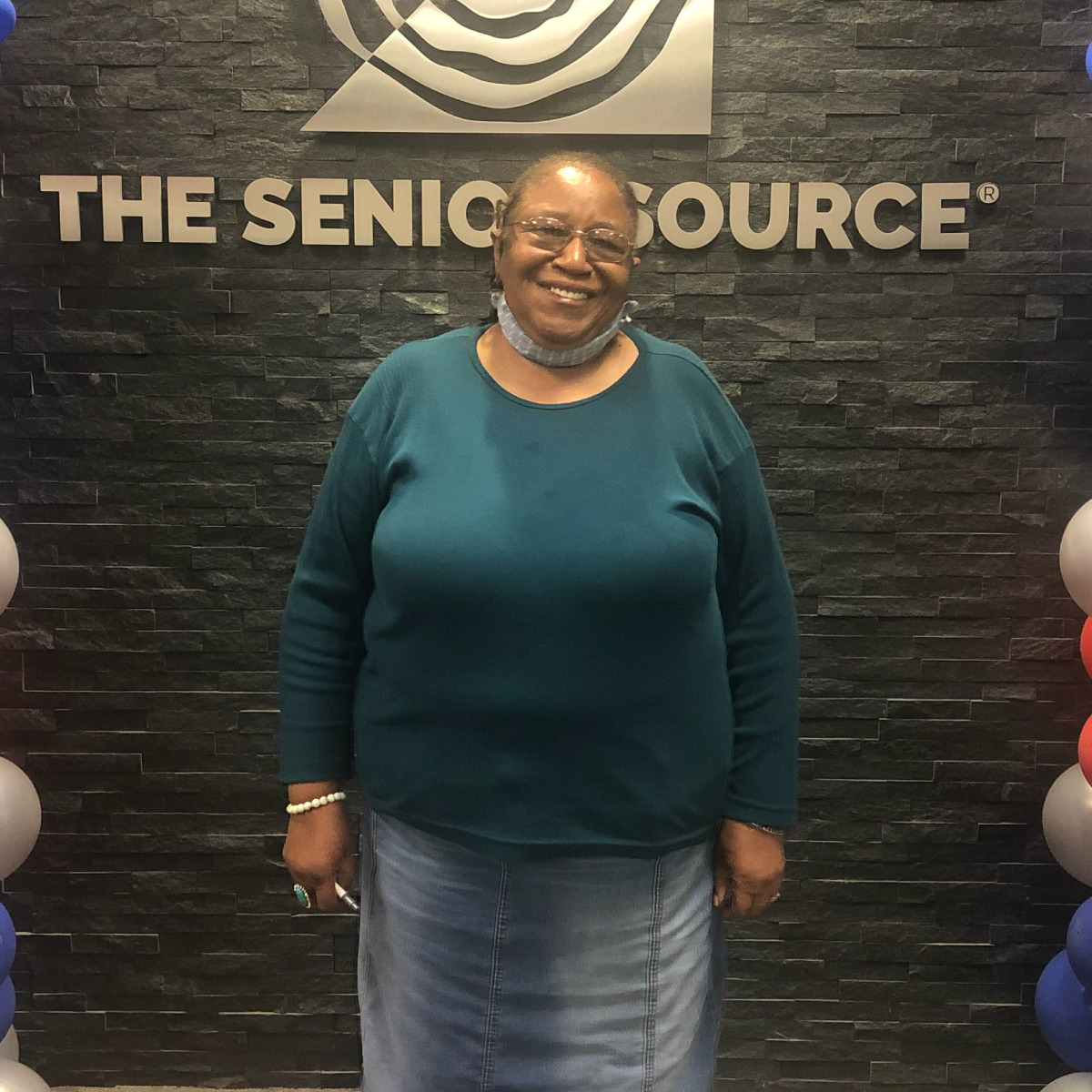We’d like to introduce Ms. Gwenderlyn Jackson. She has been a volunteer in our Senior Companion Program since 2013. Ms. Jackson shared a glimpse of her childhood memories from the 1960s and 1970s in honor of Black History Month.
A Sweet Memory
Ms. Jackson grew up in East Texas’ Marion County in an area with a large black population. Her grandfather was a landowner in Lake O The Pines. He had two fields where he grew crops. Ms. Jackson cherishes her early vivid memory of her grandfather’s watermelon patches. She laughs a little and says, “I got to enjoy the fruits of their labor. My grandfather and I would walk down to the end of the field and just crack open a watermelon. I remember the other food from the garden too. We would pick tomatoes or cucumbers and enjoy eating figs, blackberries, and pomegranates. The taste of them stands out so clearly in my memory.”
Her grandfather continued to farm both fields until they discovered oil. Ms. Jackson remembers him receiving some royalty checks from the oil operations that moved in but suspects that he mostly was cheated out of the profits.
Awakening Independence
Ms. Jackson’s great grandmother was a respected minister in Greenville, Texas, which was still very small then and extremely segregated. When she was 13, Ms. Jackson and her cousin visited Greenville.
“Coming from a bigger town, my cousin and I were used to more freedom,” Ms. Jackson remembers. “We were walking around town and saw an ice cream shop. We wanted some ice cream, so we went in. When we walked in everybody was looking at us. We sat down and asked for ice cream.” The white people asked the girls why we came through the front door and refused to wait on them. Ms. Jackson remembers asking the owner, “you know we’re human just like you so what difference does the color of our skin make?”
The owner called the police. When the officer arrived and asked the girls their names, he recognized her last name and contacted her great grandmother. He said he was going to talk to her and tell her to get better control over her grandchildren.
Like many black citizens of segregated towns, Ms. Jackson’s parents and grandparents were afraid for the children to get into trouble. She remembers being scolded for “acting up.” “My parents and grandparents all agreed that the police and the ice cream parlor owner should have treated us better, but they thought my cousin and I had misbehaved too. They didn’t want us to get in trouble. I felt like we were attacked, and I stood up for myself.”
Integrating High School
When Ms. Jackson started her junior year of high school in 1969 the school districts decided they were going to be integrated for the first time. She was sent to school in Jefferson, Texas instead of the school she had attended for 11 years. It was challenging for her to say the least. She is most proud that she was elected Junior class president that year and started a new tradition.
Most stories of integrating schools in the 1960s and 1970s feature angry and rude white people shouting aggressively and throwing things. This mostly matches Ms. Jackson’s memory. “The first person who greeted me when I went to the new high school was a young, Caucasian girl,” she said. “We became acquaintances. She was nice to me. There were a few okay ones, but the majority of them were angry. I just reminded them that it had been set by the school board. They could be angry if they wanted to, but it wasn’t going to change anything.”
“When I was elected Junior Class President, I led a new project to allow juniors to order a class ring,” she says. Previously only seniors could get a class ring. “When we started, we asked the principal, “Is there any stipulation or a reason why juniors couldn’t order class rings and wear them?” He said, “No, we don’t have any rules or regulations to that effect.” So, I said, “Okay so we are doing it!” Every junior class after us has been allowed to order class rings.”
Today
When asked to compare the community status of black people today to her childhood experiences, her response is, “racism still exists it’s just not voiced. It’s more subtle, but it’s still there.”
The Senior Source
The Senior Source is proud to share life experiences like Ms. Jackson’s in order to acknowledge how far we’ve come and how far we still must go. We are deeply committed to creating and promoting a diverse, inclusive, and equitable workplace that is welcoming and authentically representative of our community and those we serve. This commitment helps cultivate a sense of belonging for our staff, board, volunteers, and clients; and it allows us to best meet our mission of improving the quality of life of older adults in the greater Dallas area.

